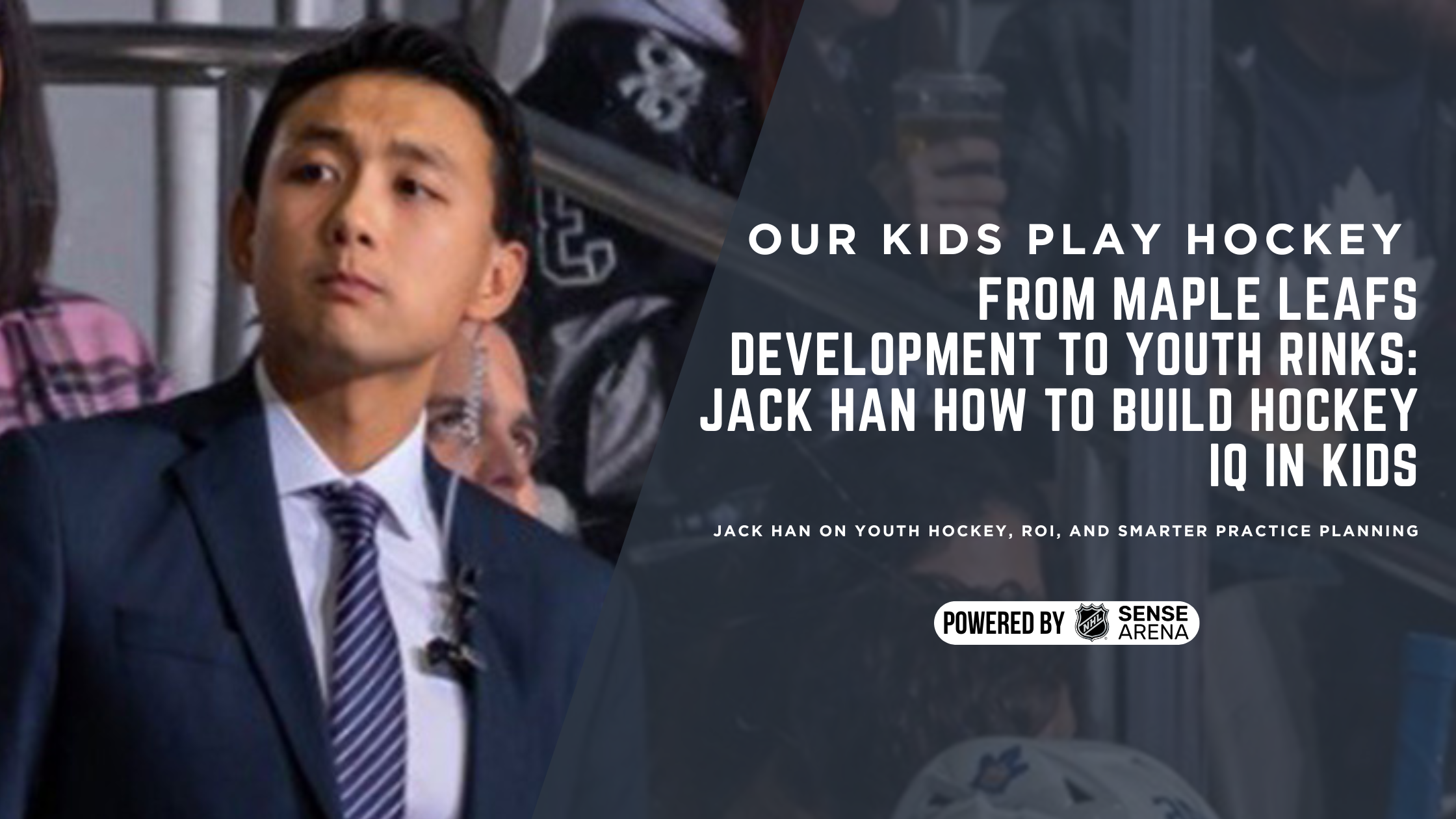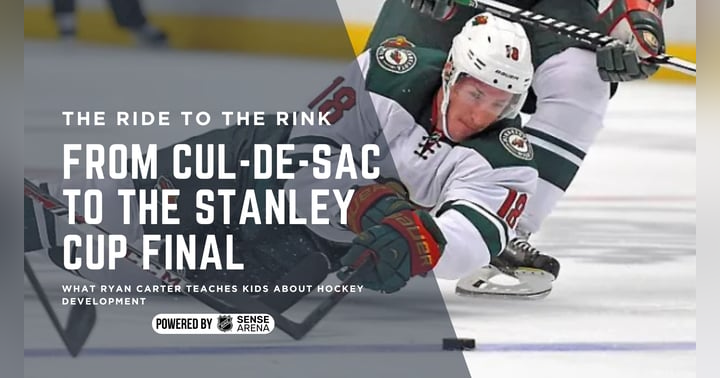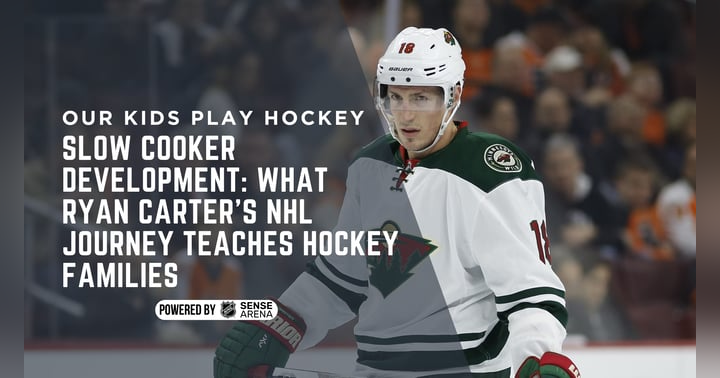From Maple Leafs Development to Youth Rinks: Jack Han How to Build Hockey IQ in Kids

Beyond Scholarships: Jack Han on Smarter Youth Hockey Development
When parents invest in youth hockey, they often dream of Division I scholarships or professional careers. But what if the true return on investment (ROI) is much bigger—and much longer-term?
That’s the perspective brought by Jack Han, former Toronto Maple Leafs staff member, player development consultant, and the voice behind the Hockey Tactics Newsletter. In his recent conversation with Our Kids Play Hockey, Jack delivered a refreshing reality check for hockey parents and coaches alike.
Why Your 14-Year-Old Doesn’t Need to Be Elite
One of the biggest myths in youth hockey is that players must be dominant by 14 to have a shot. Jack reminds us that the average NHL debut age is 26–27. If a child burns out or suffers chronic injuries by age 12, their long-term path is already compromised.
Instead of sprinting early, Jack urges families to think in decades, not seasons: “I want players to think about what their game looks like at 37, not 17.”
The Real ROI of Hockey
Parents often justify massive spending on hockey with the dream of a scholarship. But Jack challenges this view. Yes, scholarships matter — but hockey also:
Builds discipline, teamwork, and resilience.
Provides lifelong friendships and a love for fitness.
Opens doors to play professionally in unexpected places like France, Australia, or Europe.
Creates career pathways beyond playing — coaching, media, analytics, management.
In short, the ROI isn’t just financial. It’s transformational.
Coaching With Intention
Jack also stressed the importance of intentional coaching. Too many practices fall into the trap of repetition without explanation. A great coach:
Explains the why behind every drill.
Designs practices with season-long goals in mind.
Uses small area games and constraint-based learning to teach problem-solving, not just skills.
Simple adjustments—like shifting from 3-on-3 to 3-on-2—can radically change how players learn creativity and decision-making.
Hockey IQ: The Missing Ingredient
One of Jack’s sharpest points: hockey IQ isn’t vanishing, but it isn’t being taught well either. Kids need structured chances to fail, problem-solve, and observe older or better players.
“Intelligence is making finer distinctions,” Jack explained. Whether it’s recognizing an opponent’s handedness or creating space for teammates, hockey IQ develops when coaches and parents highlight the nuances, not just the results.
Final Takeaway
Hockey is a sandbox. There’s no single path to success, no guaranteed outcome. But with thoughtful coaching, supportive parenting, and an emphasis on creativity, kids can grow not just as athletes — but as people who love the game for life.
Jack Han’s message is clear: if we shift focus from short-term wins to long-term development, hockey’s ROI will be greater than we ever imagined.
💡 Want more from Jack Han? Check out the Hockey Tactics Newsletter for modern practice ideas and tactical breakdowns used by players and coaches around the world.
And don’t miss the full conversation on Our Kids Play Hockey — it’s packed with insights every hockey parent and coach needs to hear.


